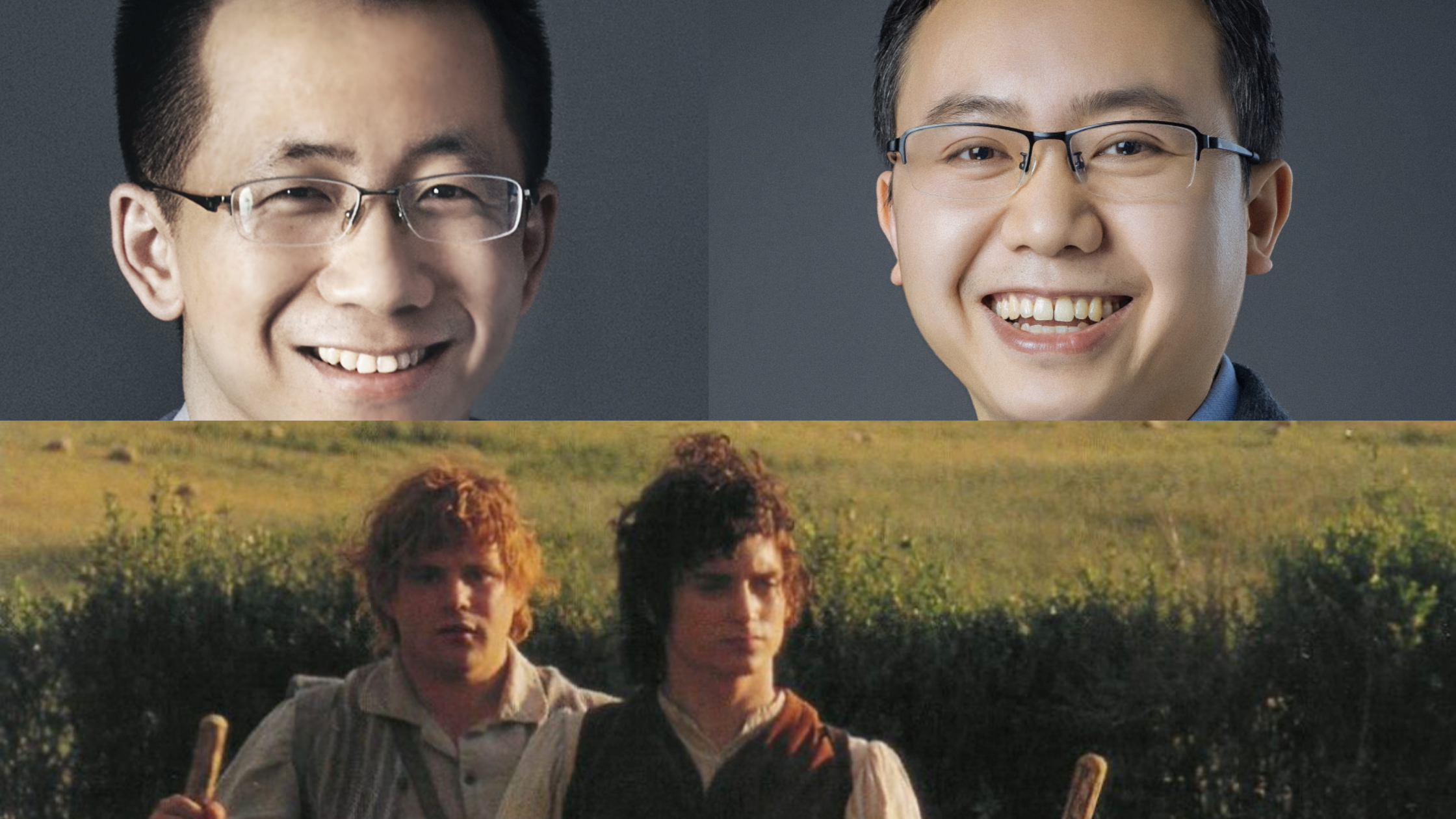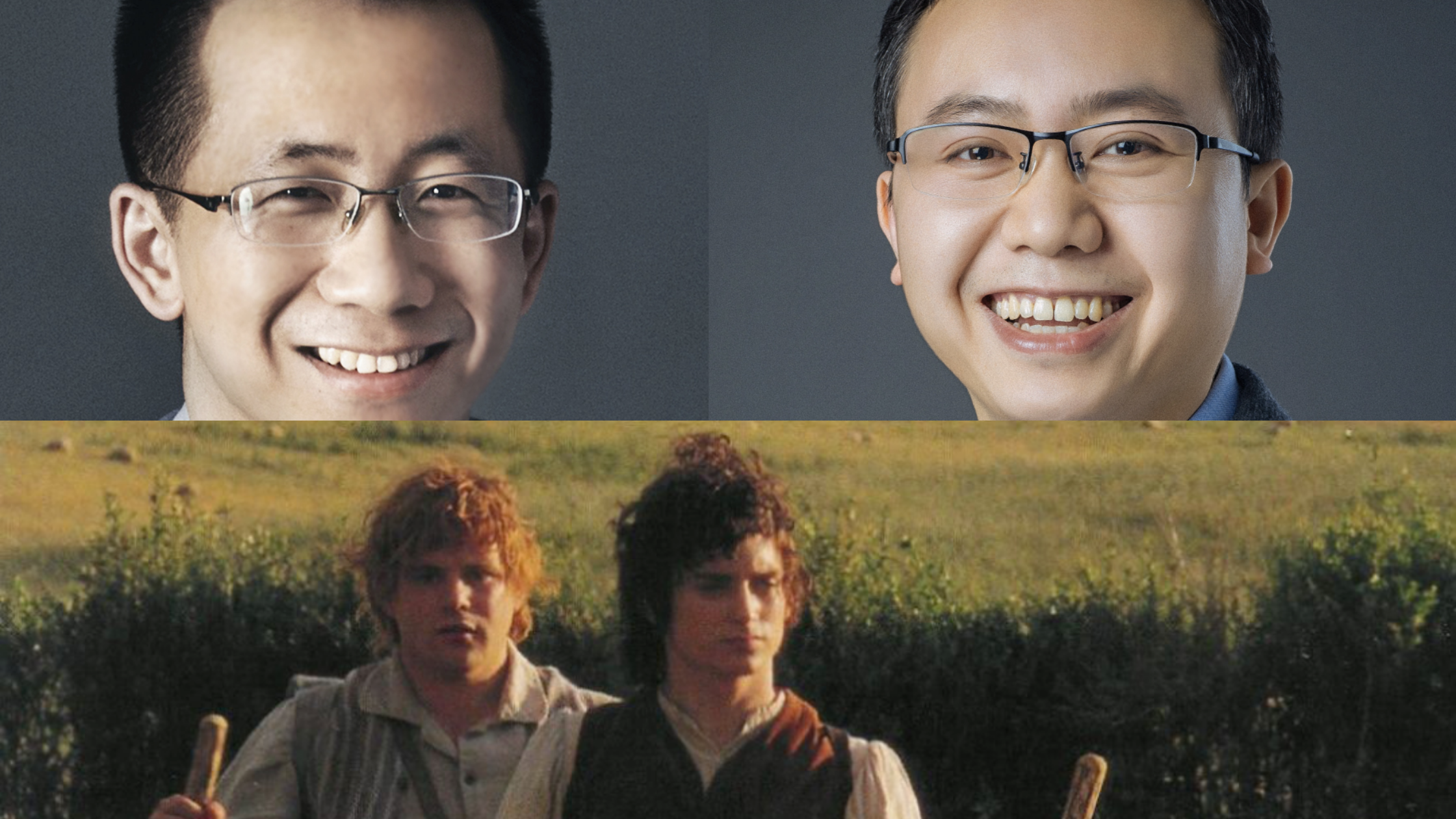This Interconnected post may be the most “disconnected” yet, but I will do my best to connect everything anyway.
First of all, I want to share that I started a new role as the senior director for International Expansion strategy at GitHub earlier this week.
Profile update.
— Kevin Xu (@kevinsxu) May 19, 2021
Excited to work with @ericabrescia and Hubbers everywhere to bring GitHub to more developers all around the 🌏. pic.twitter.com/B7zfSZoxvr
For long time readers of Interconnected, you would know my point of view and feeling towards developers. I believe developers are the most important demographic to understand and support, during this next phase of technology-driven globalization. They are also “global by nature”, given the borderless nature of learning, building, and deploying technology itself. So when this opportunity came across, it felt like a no-brainer. I’m grateful for this opportunity to practice what I’ve been preaching.
But what does this change mean for this beloved bilingual newsletter that you’ve so generously decided to spend time reading and (hopefully) subscribing?
Here are the three major changes to the “new Interconnected”, and why they are happening:
- From twice a week to once a week; new post publishes every Sunday.
Why? While this newsletter started out as a twice-a-week endeavor, I don’t think I can keep that commitment given my new obligations. I also don’t think frequency means better quality or higher value. Going forward, we will adopt a weekly publishing cadence, which is both more practical and would help me better ensure the quality of this newsletter. The content will still be a mixture of deep dive analysis and news commentaries.
- More audio and visual content.
Why? Reading is just one of the many ways to learn. I’m actually an audio learner and absorb a lot of information from audiobooks and podcasts. But so far, I’ve not spend as much energy building Interconnected’s audio and video side. I plan to do more discussion sessions, like our company building webinars, and narrations of articles with slides of key takeaways on our YouTube channel. I already did a narration of the post “China's ‘Semiconductor Theranos’: HSMC”. Please give it a listen or watch and let me know what you think!
- Outside contribution by current operators.
Why? We will expand the knowledge and expertise of Interconnected by publishing analysis and opinions by other contributors. These are all operators currently working in startups that are building developer-focused products or open source technology. I hope their views will make Interconnected more diverse, practical, and useful for you.
I clearly have a bias in favor of the opinions of founders and operators. After all, those are based on “lived experiences”, not “armchair expertise” that unfortunately still gets too much undeserved attention.
Speaking of armchair experts commenting on the action of founders/operators, I want to share some thoughts on the resignation of one of the best founders in the business last week.
(What do you think of this transition to tie everything together? *wink*)
Zhang Yiming’s Resignation
After reading Zhang Yiming’s resignation letter, in both its Chinese original and official translated version on ByteDance’s English website, I felt a sense that he felt profoundly misunderstood by the world.

That sense is not hard to validate after reading just a few media articles that reported on his resignation. Reputable media institutions would quote phrases from so-called experts who say things like, “Founders of China’s tech unicorns have built enormous personal charisma. Beijing is worried that they may grow political ambition, or at the very least influence the political agenda-setting with their popularity.”
If we are talking about Jack Ma, maybe. But Zhang Yiming? Personal charisma? Have you seen this guy? Well, here’s a video (h/t Rui Ma of Tech Buzz China) of him and Liang Rubo (the next CEO of ByteDance and Yiming’s BFF) visiting the apartment where they started ByteDance:
I can hardly imagine Yiming doing an earnings call, let alone harbor political ambitions. Sadly, almost no journalist covering tech in the US or China has been a founder or operator of any company of any meaningful size. It’s worse than sad, because these journalists end up quoting from analysts almost none of whom has done that either; they only look at companies through spreadsheets and research reports, not as a collection of human beings to recruit, hire, manage, coordinate, motivate, and oftentimes fire when things don’t go well. None of these things are easy to do in isolation, let alone when done synchronously, but that is, in essence, a company. And when you multiply them all by (literally) the tens of thousands, you get the day-to-day work of the CEO of one of the most valuable tech companies, period.
Thus, the only sentiment that’s worth any salt is from a CEO of equal calibers, like this tweet from Patrick Collison, the CEO of Stripe:
Bummed to hear about Yiming Zhang stepping down — truly an amazing CEO. To give a sense for the caliber of their execution: ByteDance was founded in 2012, is reported to have generated $35B of revenue in 2020, and hired 40,000 people last year.
— Patrick Collison (@patrickc) May 20, 2021
40,000 new employees in one year? And not just any year, but 2020? The sheer number of onboarding sessions, training, 1-on-1s with direct reports, OKR planning, etc. will wear any mid-level manager down, let alone an introverted CEO, who was also confronted with the toughest geopolitical quagmire imaginable. I’ve only built teams a fraction of that size, and it was a drain (I’m definitely an introvert too).
The lack of first-hand understanding and empathy for what entrepreneurship and company building entail means that most media narratives, especially ones about China tech, default to familiar tropes and the lumping of completely different personalities -- Jack Ma, Colin Huang of Pinduoduo, and Zhang Yiming -- into one bucket. And the people who read (and believe) these media narratives, often due to lack of alternatives, will be misinformed. People would be incapable of interpreting events like Zhang Yiming’s resignation as simply the action of a self-aware person who thought deeply about what he’s good at, what he is bad at, and have decided to use his energy where it can be used best -- ironically, the one thing every good CEO or people manager should recognize. It’s the kind of self-awareness that’s all too rare in tech. It’s more worth celebrating than over-speculating.
There’s been a lot of rough comparisons between Zhang Yiming and other successful tech CEOs. Some have compared him to Zuckerberg, because both built an ad-driven social media company -- a somewhat lazy comparison that I’ve fallen into before. More people have compared him to Colin Huang recently, given Colin’s own recent resignation with similar motivations.
But the more I think about it, the more I see Zhang Yiming as following the “Larry Page model”, which Colin emulated, perhaps having been an Xoogler. Larry, Yiming, and Colin are all engineers by training. All three appear to be introverted nerds, but also with worldly ambitions to build products and are not content to stay within academia. All three scaled their respective companies faster than their predecessors, partly due to their talent but also because of the natural scaling effect of technology products, especially when deployed in a growing market like China’s.
Let’s do a rough comparison of each ex-CEO's resignation timing.
When Larry Page resigned for good in 2015, Google:
- Valuation: ~$380 billion
- Company age (at the time): 17
- Total headcount : ~60,000
When Zhang Yiming resigned last week, ByteDance:
- Private market valuation: ~$180 billion (but shares have been trading close to ~$400 billion as recently as April)
- Company age: 9
- Total headcount: ~100,000
When Colin Huang resigned earlier this year, Pinduoduo:
- Valuation: ~$150 billion
- Company age: 5
- Total headcount: ~8,000
Given what Zhang Yiming has accomplished, with or without all the geopolitical tensions or antitrust regulations, his resignation and self-directed transition seems more than appropriate.
Some tech CEOs choose to embrace the challenge of becoming a manager -- Bezos, Zuckerberg, Musk, Reed Hastings, Pony Ma, Wang Xing, Patrick Collinson. Others choose to step away -- Bill Gates, Larry, Colin, and Yiming. They all began as engineers and nerds in one flavor or another, yet they are anything but the same. It’s almost impossible to group and interpret them by conventional boundaries, like nationalities, markets, types of product or business model, let alone geopolitical landscapes and regulations. That’s what makes them entrepreneurs and outlier successes.
Does my narrative explain why Zhang Yiming resigned better than what you may have read elsewhere? Perhaps not, but it’s certainly not worse. Given what I know about the tech business, China, entrepreneurship, and company building, I feel obligated to at least present an alternative narrative and a different perspective for you to consider.
When I recorded a podcast on ChinaTalk a few weeks ago, the host Jordan Schneider asked me who in the Chinese tech scene deserves the Steve Jobs Hollywood biopic treatment.
A perk of being a repeat guest on @jordanschnyc's ChinaTalk is that you can pick your own Mandarin hiphop outro song.
— Kevin Xu (@kevinsxu) May 12, 2021
One more reason to listen to this ep, aside from my thots on @elonmusk+China, Morris Chang, Open Source, Endless Frontier & Zhang Yiminghttps://t.co/H24uVA00cs
My answer was Zhang Yiming, obviously not knowing he was going to resign soon. I’ve always seen him as one of the more thoughtful tech CEO’s. That monk-like thoughtfulness is abundantly evident if you read his company all-hands speech in March -- his last one. The speech read more like a meditation retreat session than the typical rah-rah you’d hear in a tech company. His resignation is just the latest action that reflects his meditative, daydreaming, and hyper self-aware nature.
Whether he’ll be in a Hollywood biopic or not is out of my hands. But if that ever happens, Ashton Kutcher should definitely *not* play him.
To read all previous posts, please check out the Archive section. New content will be delivered to your inbox every Sunday. Follow and interact with me on: Twitter, LinkedIn, Clubhouse (@kevinsxu).
新《互联》;张一鸣辞职
本篇《互联》可能是迄今为止最 "不连贯" 的一篇,但我还是会尽力地把内容联系起来。
首先,我想和大家分享一下,这周我开始了一份新工作,担任GitHub的国际扩张战略高级总监。
Profile update.
— Kevin Xu (@kevinsxu) May 19, 2021
Excited to work with @ericabrescia and Hubbers everywhere to bring GitHub to more developers all around the 🌏. pic.twitter.com/B7zfSZoxvr
对《互联》的长期读者来说,大家对我对开发者态度和观点应该很熟悉了。我长期认为,在未来以科技驱动的下一阶段全球化里,开发者是最需要被了解和支持的群体。鉴于学习、建设和部署科技本身的无国界性,他们也是 "生来全球化" 的一批人。因此,GitHub这个机会与我的长远视角很吻合,我也很感激有机会来实践我的观点。
但对慷慨地选择花时间阅读和(但愿)订阅的读者来说,这会对《互联》有什么影响呢?
以下是 "新互联" 的三个主要变化和它们背后的原因。
- 从每周两次改为每周一次出版;每周日发表新文章
为什么?虽然《互联》一直是每周两次,但鉴于我的新工作,我觉得对读者保持不了这种承诺。我也不认为出版频率高就意味着质量或价值也更高。今后的新节奏是每周出版一次,既更实际些,也能帮助我更好地确保文章的质量。内容仍将是一部分深层分析,一部分新闻评论。
- 更多的音频和视频内容
为什么?阅读只是众多学习方式中的一种。我实际上很喜欢通过音频学习,平常听很多音频书和播客。但到目前为止,我没有花很多精力把《互联》的音频和视频内容做好。因此,我准备做更多的音频讨论,比如以前的几期Company Building webinar,以及在我们的YouTube频道上的长篇文章阅读和解说,并加上文章重点总结的ppt。我已经录了《中国的 "半导体Theranos":弘芯》这篇文章的音频版,请听听或看看,并给我一些您的反馈!
- 发表其他作者的贡献,都来自创业公司运营者(operator)
为什么?我们将发表更多其他作者的文章,来扩大《互联》知识库和内容。这些作者都是目前在创业公司工作的“运营者”,在打造开发者产品或开源技术。我希望他们的观点能使《互联》更多元化、更实用,最终对读者更加有用。
我自然对创始人和运营者的观点和意见有“偏爱”。毕竟,他们的观点都是基于 "生活经验"的,不像众多的 "扶手椅专家"(armchair expert)。可惜的是,这些纸上谈兵的 "扶手椅专家" 的影响力和话语权还是太大了。
说到 "扶手椅专家" 评论创始人/经营者的一举一动,我想分享一下上周科技届里最杰出的创始人之一的辞职。
(大家觉得这个把内容联系起来的过渡,效果如何?*wink*)
张一鸣辞职
我把张一鸣的辞职信,包括中文原文和字节跳动英文官网的翻译版读完后,感受到了他觉得被世界深深误解的心情。

这种误解在看完各大媒体报道他的辞职后,其实不难验证。众多权威媒体机构引用了些不着边的,所谓的“专家”的观点,比如像这段话:"中国科技独角兽的创始人打造出了巨大的个人魅力。北京担心他们可能会滋生政治野心,或者至少以自己的知名度影响政策制定。"
如果我们是在谈论马云,这可能还说的过去。但张一鸣?个人魅力?你见过他这个人吗?给大家看一段他和梁汝波(字节的下一任CEO,一鸣的“闺蜜”)参观他们俩一开始创办字节时用的公寓的视频(Tech Buzz China的马睿分享给我的):
连张一鸣做季度财报电话会议我都很难想象,更不用说怀有什么政治野心了。可悲的是,报道美国或中国科技届的记者们,几乎没有人曾在任何有规模的科技公司里当过创始人或经营者。更糟糕的是,同一批记者会引用这些所谓“专家”和分析师的话,这些人中也几乎没有人有过做公司的经历。他们只有能力通过spreadsheets和研究报告来看待一个公司,而不是将其作为一个众多人的总体,需要去招聘、雇佣、管理、协调、激励,并在状况不好的时候,解雇。单独去做这些事情就已经很不容易了,更不用说同步进行了,但从本质上讲,这才是一个公司。当你再把这些事情翻个几万倍,那就是一家最有价值的科技公司之一的CEO的日常工作内容。
因此,唯一有价值的观点只能是来自同等水平的CEO,就像Stripe的CEO Patrick Collison的这条推文:
Bummed to hear about Yiming Zhang stepping down — truly an amazing CEO. To give a sense for the caliber of their execution: ByteDance was founded in 2012, is reported to have generated $35B of revenue in 2020, and hired 40,000 people last year.
— Patrick Collison (@patrickc) May 20, 2021
一年内加了4万名新员工?而且不是普通的一年,而是2020年?入职会议、培训、一对一交流、OKR规划等的次数之多,会让任何中层管理人呕血,更不用说一个本质内向的CEO了。他同时还面临着无法想象的地缘政治困境。我个人只建立过规模较小的团队,即便如此,当时的经历已经让我脱了层皮(我也很内向)。
由于缺乏对创业和公司建设的第一手“生活经验“,大多数媒体的分析评论,尤其是关于中国科技的,都会用一些懒惰的框架去解释复杂的事情,并把完全不同的人物 -- 马云、黄峥和张一鸣 -- 都扔在一起。而读(并相信)这种媒体叙述的人,往往由于缺乏其他选择,容易被误导。许多人会无法把张一鸣辞职这种事理解为只是一个有点自知自明的人的行为,在思考过他擅长什么、不擅长什么之后,决定将精力用在最能体现价值的地方。有点讽刺的是,这种行为也是每个好CEO或经理应该意识到并做到的。这种自知自明在科技届内非常罕见,其实是个值得庆祝、不应被过度揣测的事情。
张一鸣和其他成功的科技CEO之间有很多粗旷的比较。一些人把他和扎克伯格相提并论,因为他们都做了家广告驱动的社交媒体公司 -- 这种比较有点懒散,我以前也曾陷入其中。最近,更多人把他与黄峥做比较,因为黄峥最近也辞职了,情况有些相似。
但是我越想越觉得张一鸣是在遵循黄峥所模仿的 "Larry Page模式";黄峥也是个Xoogler。Larry、张一鸣和黄峥都是搞技术的出身,似乎都是内向的书呆子,但也有想做产品,做公司的世俗野心,不满足于留在学术界内。这三个人都比他们的前辈更快地扩大了各自的公司规模,部分原因是他们的才能,但也是因为科技产品自然的扩展效应,特别是在像中国这种飞速增长的市场里。
那让我们对这三位前CEO的辞职时机做一个粗略的比较。
Larry Page在2015年辞职时的谷歌:
- 市值:~3800亿美元
- 公司年龄(当时):17岁
- 总人数 : ~6万人
张一鸣上周辞职时的字节跳动:
- 估值:~1800亿美元(但最近4月份的二手市场的交易显示估值接近~4000亿美元)
- 公司年龄:9岁
- 总人数:~10万人
几个月前黄峥辞职时的拼多多:
- 市值:~1500亿美元
- 公司年龄:5岁
- 总人数:~8千人
鉴于张一鸣所取得的成就,无论是否有其他地缘政治局势或反垄断法规的原因,他辞职的时机其实都很合理。
一部分科技公司的CEO选择面对做好管理人的挑战 -- 贝索斯、扎克伯格、马斯克、里德-哈斯廷斯(Netflix)、马化腾、王兴、Patrick Collison等。其他人则选择退而求其次 -- 盖茨、Larry Page、黄峥和一鸣。这些人都是工程师,书呆子,但每个人都有独特之处,这也就是为什么他们能成为成功的创业者,而且几乎无法被用传统的界限来分类和解释,比如国籍、市场、产品类型或商业模式等等,更不用说地缘格局和政策法规了。
我的解释是否比您在其他媒体读到的解释更有说服力?也许不是,但肯定不会更糟。鉴于我对科技行业、中国、创业和公司建设的了解,我觉得自己至少有义务提出另一种不同的观点供您参考。
几周前我在录ChinaTalk播客节目时,主持人司马乔丹问我,在中国科技界里,谁最配乔布斯的好莱坞传记片的待遇?
A perk of being a repeat guest on @jordanschnyc's ChinaTalk is that you can pick your own Mandarin hiphop outro song.
— Kevin Xu (@kevinsxu) May 12, 2021
One more reason to listen to this ep, aside from my thots on @elonmusk+China, Morris Chang, Open Source, Endless Frontier & Zhang Yiminghttps://t.co/H24uVA00cs
我的回答是张一鸣,当时当然不知道他即将辞职。我一直认为他是比较有思想的CEO之一。如果你读一下他3月份对公司全体员工的讲话,也是他的最后一次这种演讲,就会发现他这种和尚般的深思熟虑体现的淋漓尽致。演讲内容更像是一场寺庙里的静修会,而不像是其他主流科技公司的那种激励和氛围。他的辞职也只是他冥想一般、喜欢发呆的个性和高度自我意识的最新体现。
张一鸣是否会出现在好莱坞的片子中,我无法预测。但如果有一天这真的发生了,Ashton Kutcher绝对不应该演他。
如果您喜欢所读的内容,请用email订阅加入“互联”。要想读以前的文章,请查阅《互联档案》。每周一次,新的文章将会直接送达您的邮箱。请在Twitter、LinkedIn、Clubhouse(@kevinsxu)上给个follow,和我交流互动!
